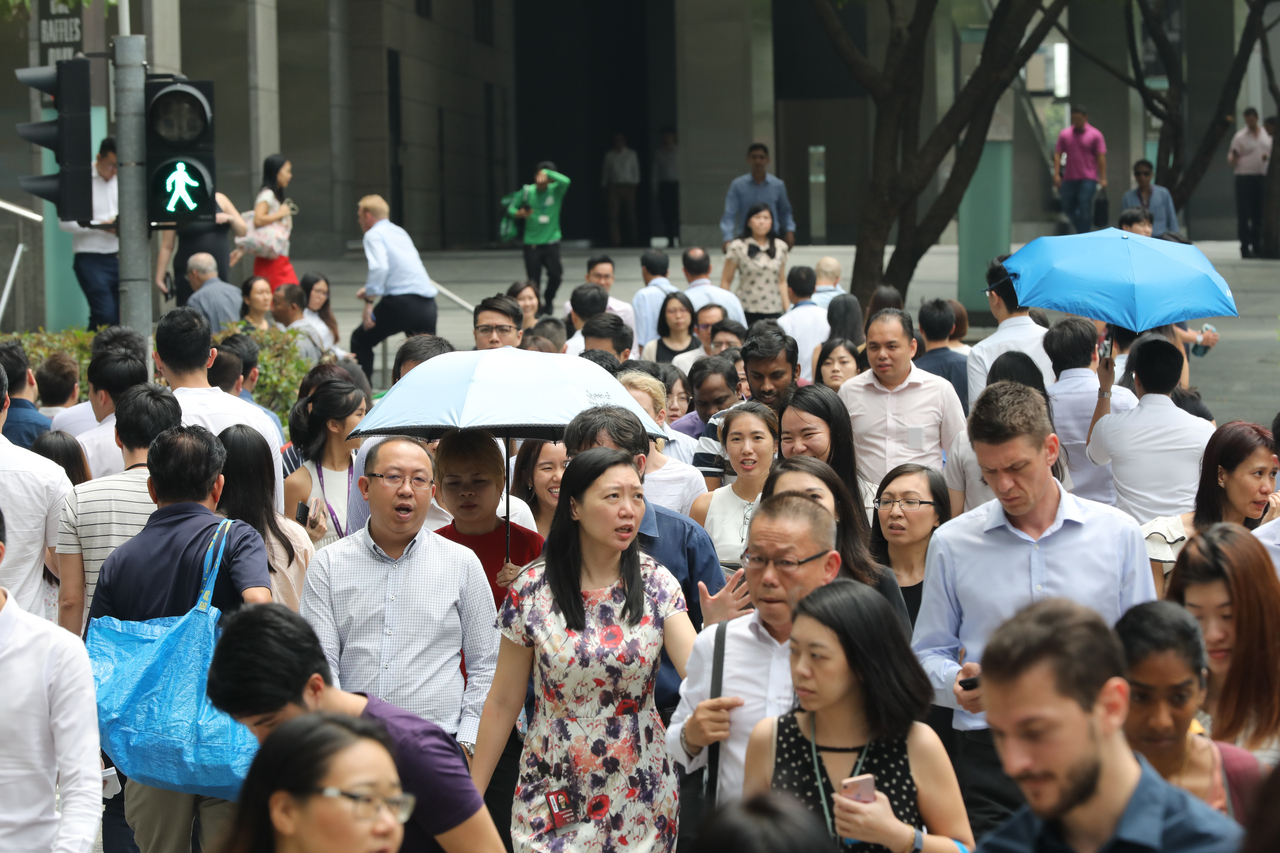MAS warns of job losses, slower wage growth as recession looms
Sign up now: Get ST's newsletters delivered to your inbox

The central bank said the job market will worsen amid a sharp drop in both economic activity and demand for goods and services at home and abroad.
PHOTO: ST FILE
Follow topic:
The Monetary Authority of Singapore (MAS) expects increasing job losses and fewer pay rises this year as the economy heads into its worst recession on record.
The central bank said the job market will worsen amid a sharp drop in both economic activity and demand for goods and services at home and abroad.
"The resident unemployment rate is expected to rise and wage growth ease," MAS said in its monetary policy statement yesterday.
"A degree of labour market slack could emerge as firms pull back on their hiring plans, even as the scale of retrenchments is mitigated by the Jobs Support Scheme," it said.
MAS noted the "economy will enter a recession", and will shrink by 1 per cent to 4 per cent this year.
In the fourth quarter of last year, the seasonally adjusted unemployment rate had risen to 2.3 per cent, up from 2.1 per cent in the last three months of 2018.
Unemployment among Singaporean citizens was even higher at 3.3 per cent, up from 3 per cent in the same quarter of 2018.
Retrenchments had also crept up in the fourth quarter of last year to 2,700 persons, compared with 2,470 in the third quarter of 2019.
Even more troubling is the fact that the job vacancy to unemployment ratio has stayed below 1.0 since the second quarter of last year - suggesting there were more unemployed persons than vacancies available.
United Overseas Bank economist Barnabas Gan, in a research note yesterday, compared the current labour market trends to previous periods of crisis, and noted that unemployment rates had risen then despite government intervention.
Singapore's unemployment rate increased to 4.8 per cent in the third quarter of 2003 during the severe acute respiratory syndrome (Sars) outbreak, up from 3.6 per cent the previous year.
Similarly, during the global financial crisis (GFC), the unemployment rate rose to 3.3 per cent in the third quarter of 2009, up from 2.3 per cent in the second quarter, despite the introduction of the $20.5 billion Resilience Package then.
"Coupled with the initial stress seen in Singapore's labour market prior to the Covid-19 outbreak, the pandemic will likely further weaken Singapore's labour market in 2020," Mr Gan said.
"As such, we pencil Singapore's unemployment rate to rise to 3.5 per cent in 2020, similar to the impact seen during Sars and GFC."
However, Mr Gan pointed out, the level of government support announced this time around - a total of $55 billion - is more than twice the level of support given during the global financial crisis and should help mitigate some of the negative impact of the crisis.
Weak labour market conditions and consumer sentiment, however, may lower inflation, capping costs for businesses and prices for consumer goods.
MAS lowered its 2020 forecast range for both core inflation, which excludes the costs of accommodation and private road transport, and overall consumer price inflation to minus 1 per cent to 0 per cent.
Core inflation fell last month into negative territory for the first time in a decade as the pandemic's damage to demand outweighed price pressures from supply disruptions.
MAS expects external sources of inflation to weaken in the near term amid the global downturn and, in particular, due to the sharp slide in oil prices, which are expected to stay low for an extended period.
"However, supply chain disruptions arising from worldwide measures to contain Covid-19 could put some temporary upward pressure on imported food prices," it said.
Maybank economist Chua Hak Bin, in an e-mail reply to questions yesterday, said imported inflation can also rise due to hoarding of staples by some of the leading food exporters.
Vietnam, for example, halted overseas shipments of the commodity from Tuesday to Saturday last week to ensure its own food security.
"Food prices may see a temporary increase in March and April due to the supply chain disruptions, but will not offset the broad-based decline," Dr Chua said.
MAS expects rentals to be broadly flat as demand for accommodation eases in line with the reduced inflow of foreign workers.
Dr Chua said businesses are focused on survival and staying afloat, as revenue topline is collapsing and margins are coming under pressure.
On the other hand, consumers stuck at home will cut back on discretionary spending and holidays.
"Severe job losses in the coming months could see consumers delaying big-ticket items, including cars and housing," he said.

